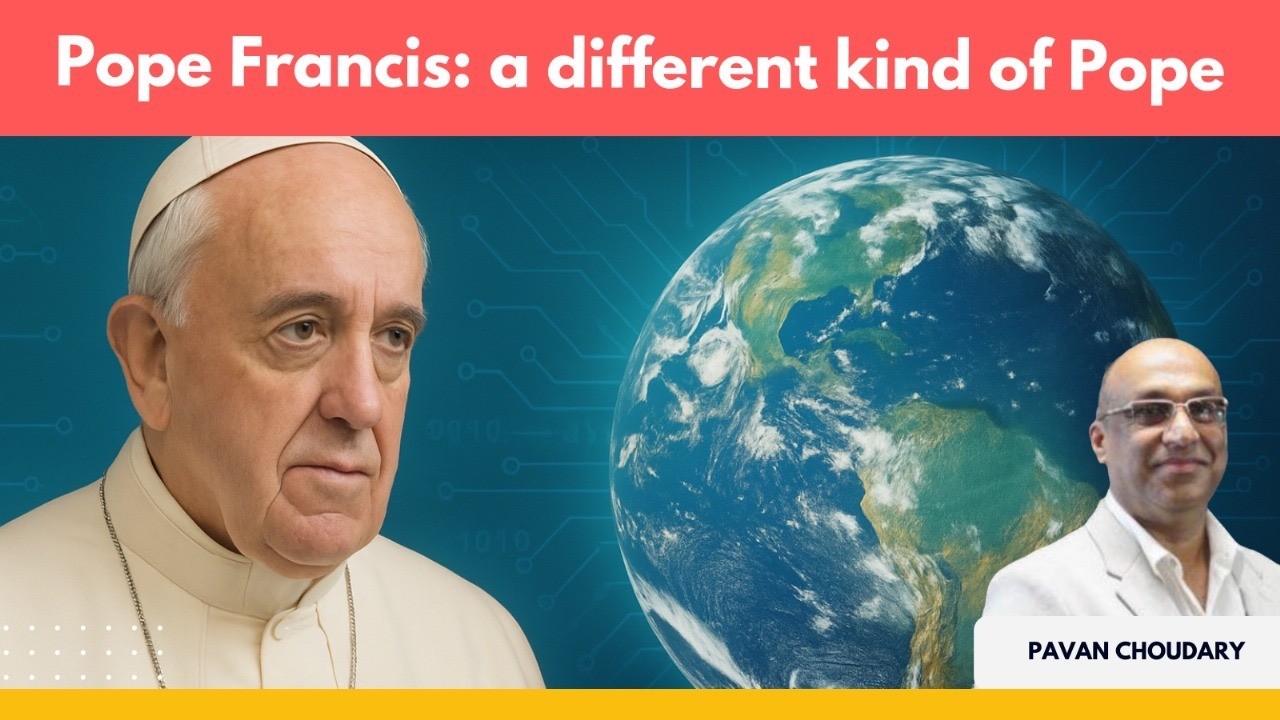 From the moment he chose the name “Francis,” it was clear that this pope would be different. His inspiration was St. Francis of Assisi— a truly noble 13th-century saint, who is often seen as the first ecological thinker who underscored the need to live in harmony with our environment.
From the moment he chose the name “Francis,” it was clear that this pope would be different. His inspiration was St. Francis of Assisi— a truly noble 13th-century saint, who is often seen as the first ecological thinker who underscored the need to live in harmony with our environment.
Pope Francis carried forward that spirit, emerging as a firm advocate for the climate agenda. He supported the scientific consensus on global warming and emphasized that all action on the environment should be grounded in data and ethics.
His embrace of science was perhaps most evident during the COVID-19 pandemic. At a time when vaccine hesitancy surged worldwide—fuelled by misinformation, conspiracy theories, and libertarian resistance to public health mandates—Pope Francis stood firmly on the side of evidence-based medicine. He used the moral authority of the Church to powerfully counter vaccine misinformation.
Vaccine hesitancy has a long and complex history. Initially, vaccines were opposed on religious grounds, viewed as interference with divine will. Later, in liberal societies, they were resisted as infringements on personal freedom, especially when made mandatory.
In modern times, the anti-vaccine movement gained steam from a 1998 study by Dr. Andrew Wakefield that falsely linked the MMR vaccine to autism. Though this study was retracted and debunked, the myth persisted, fuelling suspicion, lowering immunization rates and contributing to outbreaks of preventable diseases like measles.
In recent decades resistance was further inflamed by conspiracy theories that framed vaccines as tools of profiteering corporations.
During COVID, these historical currents of vaccine hesitancy—religious conservatism, libertarianism, and conspiracism—converged and evolved into a potent mix of distrust, politics, and misinformation sparking a transnational movement of vaccine resistance. Pope Francis stood squarely against this wave. He called for trust in science, praised healthcare workers as “ministers of compassion,” and urged people to get vaccinated—not just as an act of self-protection, but as an act of moral responsibility to others.
At the same time, he wasn’t naive—he cautioned against profiteering in medicine, underscoring the need for ethics even within scientific enterprise and demanding a balance between compassion and commerce.
His science-forward stance extended beyond medicine – to emerging technologies like artificial intelligence. Francis called for a global ethical framework that protects human dignity, equity, and algorithmic fairness—an unusually thoughtful intervention from a religious leader in the digital age.
Beyond his scientific stance, Pope Francis also led a tough internal reform movement within the Church. He took courageous stands against corruption and inefficiency in the papacy. He brought a sense of moral purpose to reform, facing the attendant criticism and brickbats with quiet resilience – taking the hits courageously but never backing down.
In many ways, Pope Francis embodied a unique blend of reason and moral integrity. He was equally a man of modern science and moral clarity, showing that faith and reason, far from being in conflict, can illuminate and strengthen one another even in today’s polarized world.
-Pavan Choudary
If you wish to watch/hear this piece on youtube please click on the link below. Thanks.